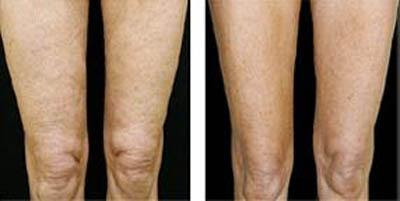
Thermage Treatments Procedure
Thermage Benifits
Thermage is best suited for those who are starting to see signs of aging: early jowling, loose skin, creases around the nose and mouth, and wrinkles around the nose and mouth. It is not designed a substitute for a face lift. So, if you are someone who has heavy jowling, a turkey-gobbler neck, and loose lax skin of the face and neck, you are likely to see some improvement after thermage, but not a dramatic improvement. If, on the other hand, you have medical problems that prevent you from having a face lift (or if you simply do not want to have surgery), then Thermage will at least offer you something - you just need to adjust your expectations.
Thermage will also help people with active acne and acne scars. Just one treatment will give visible improvement in most people.
Need to know before considering Thermage
Although thermage is called a "non-surgical face lift," it is not a substitute for a face lift. It will give a portion of the improvement that a facelift will give in many people. There are, however, some people who will see no improvement following Thermage (especially those who have very loose skin and are really ready for a facelift, or those with very heavy faces). For these people, a second treatment may be performed six months after the first. This second treatment may or may not yield improvement. Thermage seems to work best in people with thin faces who are just on the verge of needing a facelift and want to put it off for a few years. In other words, if you have looses skin, sagging jowls, and a turkey gobbler, you can try thermage, but you may not see much improvement.

Thermage before and after pic
Thermage Procedure
Normally, the complete procedure can be performed in just one session lasting from 20 minutes to two hours, depending on the treatment area. General anesthesia is not required, but to make sure you are comfortable the doctor may offer light pain medications prior to treatment.
During the treatment, you'll feel a brief, heat sensation each time Thermage delivers radiofrequency energy to the underlayer of your skin. This indicates that your collagen is being stimulated and tightened.
After treatment, your skin may be slightly red for a day or two. But most people resume regular activities immediately after treatment, with no downtime or special follow-up care.
Thermage Results
Results are seen at different times for different people. Some start to see improvement as soon as one month after Thermage. Others begin to see improvement after 2-3 months. All continue to improve for a total of six months after the treatment. As noted above, a few people fail to see substantial improvement after the first treatment and are encouraged to have a second treatment six months later.
Thermage has been in existence since 2000. Those who were treated at that time have shown consistent results with no deterioration since then. So, we know that Thermage lasts at least this long. It is projected that the benefits from Thermage may last as long as 5-10 years, but there is no way of knowing this yet. Time will tell.
Side Effects of thermage treatments
Side effects are rare (less than 1%) and include swelling, redness, bumps and blisters on or around the treated area. These side effects usually disappear in a few days or weeks. Even more rare but longer lasting is a side effect that leads to a depression in the skin. The risks and benefits of thermage need to be discussed in detail with your physician.

Thermage legs, before after
Ask your plastic surgeon about these complications from Thermage
*Burn: There is a small risk of burn, blistering and scarring associated with this procedure.
*Discoloration: It is possible that the skin may turn lighter or darker after any skin procedure. This has not been a problem after Thermage.
*Pain and tingling: Pain is uncommon after the procedure is over. No pain medication is necessary. However, some people experience tingling, burning or soreness for a few days or weeks, especially along the jaw line.
Thermage Cost
The costs are variable. Charges may be based on the number of areas treated, the level of training of the person who treats you, and market conditions. In general, a full face treatment varies from $2000 - $5000. A partial face treatment (forehead, cheeks, or neck) varies from $1000 - $3000.


No comments:
Post a Comment